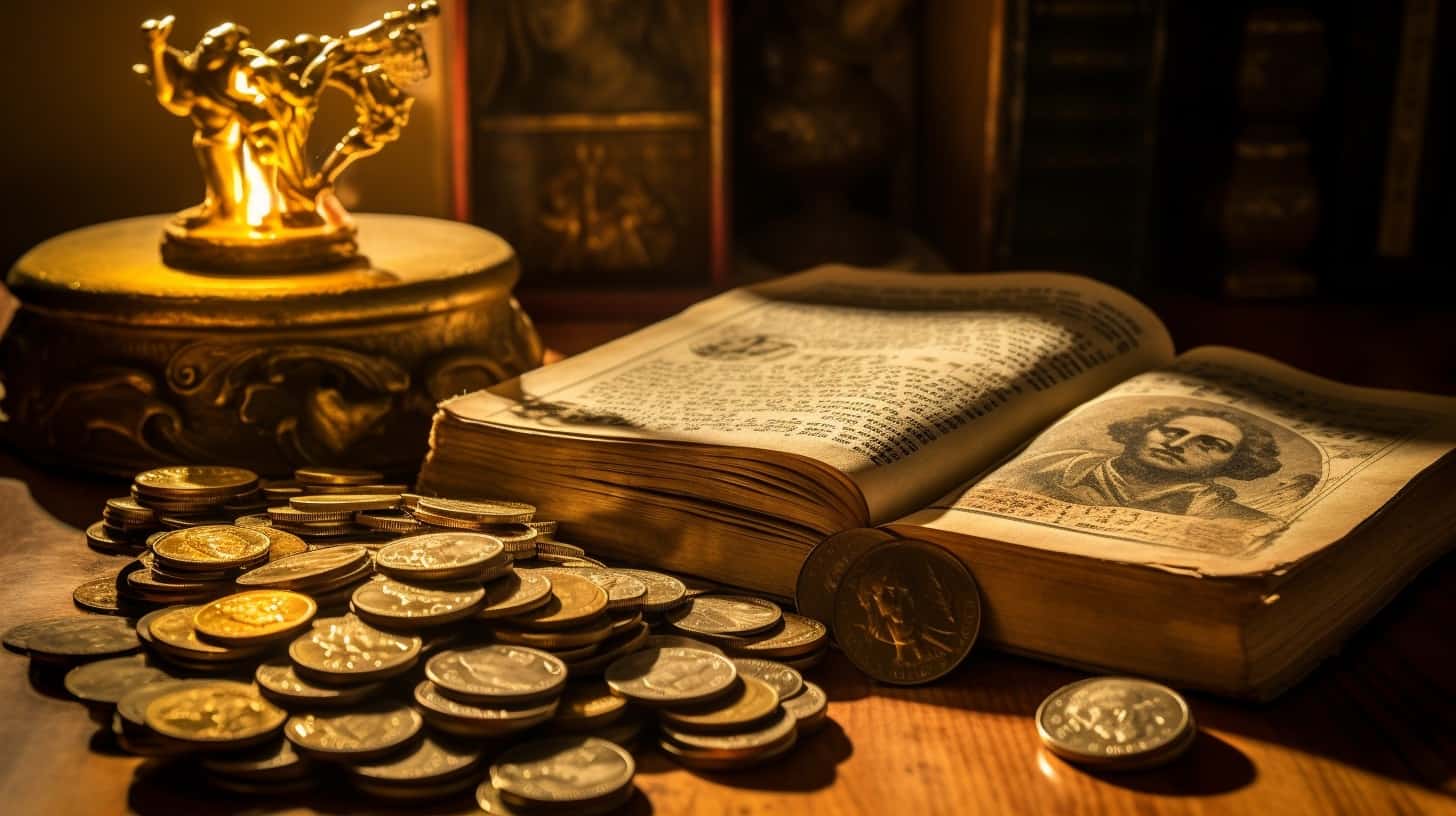Where to get pennies may seem insignificant information, yet you are wrong. If you’re looking to get your hands on some pennies for a school coin drive, savings jar, or art project, you have plenty of options.
Here’s a quick answer: You can get pennies from banks, credit unions, grocery stores, retail shops, and even directly from the U.S. Mint. You can also try coin-counting machines, ask friends and family to save theirs, or find pennies around your home.
In this comprehensive guide, we’ll explore all the best places and methods for getting pennies at no cost so you can stock up on those bronze beauties.
Banks and Credit Unions
When it comes to acquiring pennies, banks, and credit unions are some of the best places to start. These financial institutions deal with currency daily, so they are likely to have a steady supply of pennies on hand.
Here are a couple of ways you can obtain pennies from banks and credit unions:
Ask for penny rolls
One way to get pennies from banks and credit unions is by asking for penny rolls. These are rolls of coins, usually containing 50 pennies each. Simply approach the teller and politely request a specific number of penny rolls.
Most banks and credit unions are happy to provide customers with these rolls, as it helps to keep their inventory balanced. It’s a win-win situation!
Use their coin counting machines
Another convenient option offered by some banks and credit unions is the use of their coin-counting machines. These machines make it easy for customers to deposit loose change and receive the equivalent value in bills or coins.
If you have a large amount of loose change, including pennies, you can bring it to the bank or credit union and let the coin-counting machine do the work for you. It’s a quick and efficient way to exchange your spare change for usable currency.
It’s important to note that not all banks and credit unions offer coin-counting machines, so it’s a good idea to call ahead and inquire about their services. Additionally, some institutions may charge a small fee for using the coin-counting machines, while others offer the service for free to their customers.
Be sure to ask about any associated costs before using the machines.
For more information about banks and credit unions, you can visit their official websites. Websites like Bankrate or Credit Karma provide valuable insights and resources on personal finance.
Grocery Stores and Retailers
Get pennies as change at checkout
One of the most common ways to get pennies is by receiving them as change at grocery stores and retailers. When purchasing with cash, the cashier will often give you your change in a combination of bills and coins, including pennies.
So, the next time you’re at the checkout counter and your total comes to $10.02, don’t be surprised if the cashier hands you back 98 cents in change, which could include pennies.
Use coin counting machines
If you have accumulated a large number of pennies and want to convert them into more manageable denominations, you can consider using coin-counting machines. These machines are often found in grocery stores, banks, and some retailers.
They allow you to pour your loose change into the machine, which then counts and sorts the coins for you. It’s a convenient way to turn your pennies into larger denominations, such as dollar bills or gift cards.
Keep in mind that some coin-counting machines may charge a fee for their services, so it’s a good idea to check before using them. Additionally, some machines may only accept certain denominations, so make sure to read the instructions or ask an employee for assistance.
Editor’s note: If you’re looking for the nearest grocery store or retailer that offers coin-counting machines, websites like Coinstar can help you locate one in your area. Simply enter your zip code or city, and it will provide you with a list of nearby locations where you can find coin-counting machines.
Remember, pennies may seem insignificant, but they can add up over time. So, whether you’re collecting them for a specific purpose or simply looking to get rid of them, grocery stores and retailers can be a great resource for obtaining and managing your penny supply.
U.S. Mint
The U.S. Mint is the official government agency responsible for producing and distributing coins in the United States. If you’re looking to get pennies, the U.S. Mint is a great place to start.
Order penny sample packs
If you’re interested in collecting or studying pennies, you can order penny sample packs directly from the U.S. Mint. These sample packs usually contain a variety of pennies from different years and mint marks.
It’s a great way to examine the design changes and variations that have occurred over time.
Buy penny rolls
If you’re simply looking to acquire a large quantity of pennies for everyday use or a special project, you can buy penny rolls from the U.S. Mint. These rolls typically contain 50 pennies each and are a convenient way to stock up on this commonly used coin.
It’s important to note that the U.S. Mint may have certain restrictions or limitations on the quantity of pennies you can order or purchase. Be sure to check their website or contact them directly for more information.
Coin Counting Machines
Find penny accepting machines
When it comes to finding coin-counting machines that accept pennies, there are several options available. Many banks and credit unions have coin-counting machines located in their branches. These machines are often free to use for account holders and can count large quantities of coins in a matter of minutes.
Additionally, some grocery stores and convenience stores offer coin-counting services for a small fee.
If you’re unsure where to find a penny-accepting machine near you, a quick online search can provide you with a list of locations in your area. Websites like Coinstar allow you to search for coin-counting machines by zip code, making it easy to find the closest one to you.
Deposit and receive pennies
Using a coin-counting machine to deposit and receive pennies is a convenient way to handle your loose change. Many machines allow you to simply pour your coins into the designated slot, and they will automatically count and sort them for you.
Once the counting process is complete, you can choose to receive the total value in cash, or you can opt for a gift card or e-certificate to popular retailers.
It’s important to note that while coin-counting machines are generally accurate, they may occasionally make errors. To ensure the most accurate count, it’s a good idea to double-check the machine’s count before finalizing your transaction.
If you suspect an error, don’t hesitate to reach out to the machine’s customer service for assistance.
Remember, coin-counting machines are a convenient way to handle your pennies, but they may not be available in all areas or at all times. If you’re unable to find a nearby machine or prefer a different method, consider using traditional rolls to count and store your pennies.
Many banks offer free coin wrappers, making it easy to organize and deposit your pennies.
Friends and Family
When it comes to finding pennies, your friends and family can be a great source. Here are a few ways to tap into this resource:
Ask to save their spare pennies
Reach out to your friends and family members and kindly ask them to save their spare pennies for you. Let them know that you’re working on a collection or simply enjoy the satisfaction of finding loose change. You’d be surprised at how many people are more than happy to help you out.
Plus, it’s a fun way to bond with your loved ones and share a common interest.
Offer trade for other coins
If you have a collection of coins and are looking to expand it, consider offering a trade to your friends and family. Perhaps they have some spare coins from other countries or a unique commemorative coin that you’ve been eyeing.
By offering a trade, you both get something new for your collections, and it adds an element of excitement to the process.
Remember, when asking friends and family for their spare pennies or offering a trade, always be respectful and grateful for their generosity. It’s all about building connections and enjoying the process of collecting coins.
Around Your Home
Check couch cushions and car seats
When it comes to finding pennies around your home, one of the first places to look is in your couch cushions. Over time, loose change can easily get wedged between the cushions, and you may be surprised to find a few pennies hiding in there.
Don’t forget to also check your car seats, as spare change often finds its way into the crevices of your vehicle. So, take a moment to dig deep into those couch cushions and car seats, and you might just uncover a small fortune in pennies!
Look in junk drawers and old purses
Junk drawers and old purses can be treasure troves when it comes to finding loose change. Many people have a habit of tossing spare pennies into these catch-all spaces, forgetting about them over time.
Take some time to rummage through your junk drawers and check the bottoms of old purses – you never know what you might find. It’s like a mini scavenger hunt, and who knows, you might stumble upon enough pennies to buy yourself a little treat!
Remember, it’s always a good idea to thoroughly search these areas, as even a few pennies can add up over time. So, before you dismiss those couch cushions or discard that old purse, take a moment to give them a thorough search. You never know, you might just find the pennies you’ve been looking for!
Where To Get Pennies – Conclusion
With all these easy options—from banks to stores to your own home—getting pennies in bulk quantities is doable. Just decide which methods work best for your needs. Before you know it, you’ll have enough pennies for any project or savings goal.
The bottom line is, don’t throw away your pennies! They can add up over time. With a plan and some searching, you can gather plenty of pennies at no cost.





